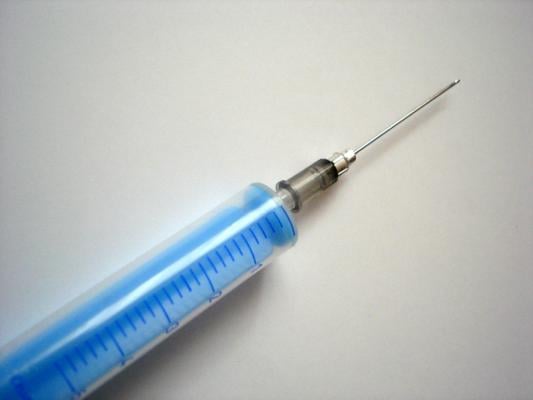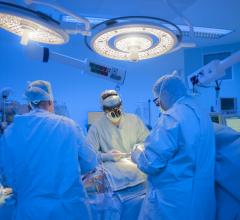
May 20, 2015 — A study presented at Heart Rhythm 2015 found that botulinum toxin (botox) injections into epicardial fat pads during coronary artery bypass graft (CABG) surgery can be beneficial for the patient. The injection not only reduces the incidence of post-operative atrial fibrillation (AF), but also provides substantial AF suppression after one year.
Heart Rhythm 2015 is the Heart Rhythm Society’s 36th annual scientific sessions, May 13-16 in Boston.
AF is the most common arrhythmia complicating cardiac surgery and occurs in approximately 30-40 percent of patients undergoing CABG surgery. CABG is the most common type of open-heart surgery in the United States and improves blood flow to the heart to treat people with coronary heart disease. Patients who develop AF after cardiac surgery are at an increased risk of stroke and congestive heart failure.
The prospective, double-blind study randomized 60 patients with a history of paroxysmal AF undergoing CABG to receive either botox injections or a saline placebo injection during surgery. Patients were followed for one year to assess maintenance of sinus rhythm using an implantable loop recorder. All patients in both groups had successful epicardial fat pad injections without complications and with minimal additional surgery time.
The incidence of early postoperative AF within 30 days after surgery was two patients (7 percent) in the botox group compared to nine patients (30 percent) in the placebo group. Between the 30-day period and up to the 12-month follow-up examination, seven of the 30 patients in the placebo group (27 percent) had recurrent AF, while no patients in the botox group (0 percent) experienced recurrent AF. Further, there were no complications observed during the one year follow-up.
“Currently, there are no therapies available to reduce AF after open heart surgery, so the study results are very promising and help fulfill an unmet need in cardiology care,” said lead author Evgeny Pokushalov, M.D., Ph.D., State Research Institute of Circulation Pathology, Novosibirsk, Russian Federation. “Botox injections in the epicardial fat pads have the potential to become standard of care for patients undergoing open heart surgery and provide a new opportunity to reduce AF and associated complications.”
The lead authors call for a large, multi-center study to assess the safety and efficacy of botox injections in the epicardial fat pads for AF prevention and to further showcase the clinical benefit of this technique.
For more information: www.hrsonline.org


 January 15, 2026
January 15, 2026 









